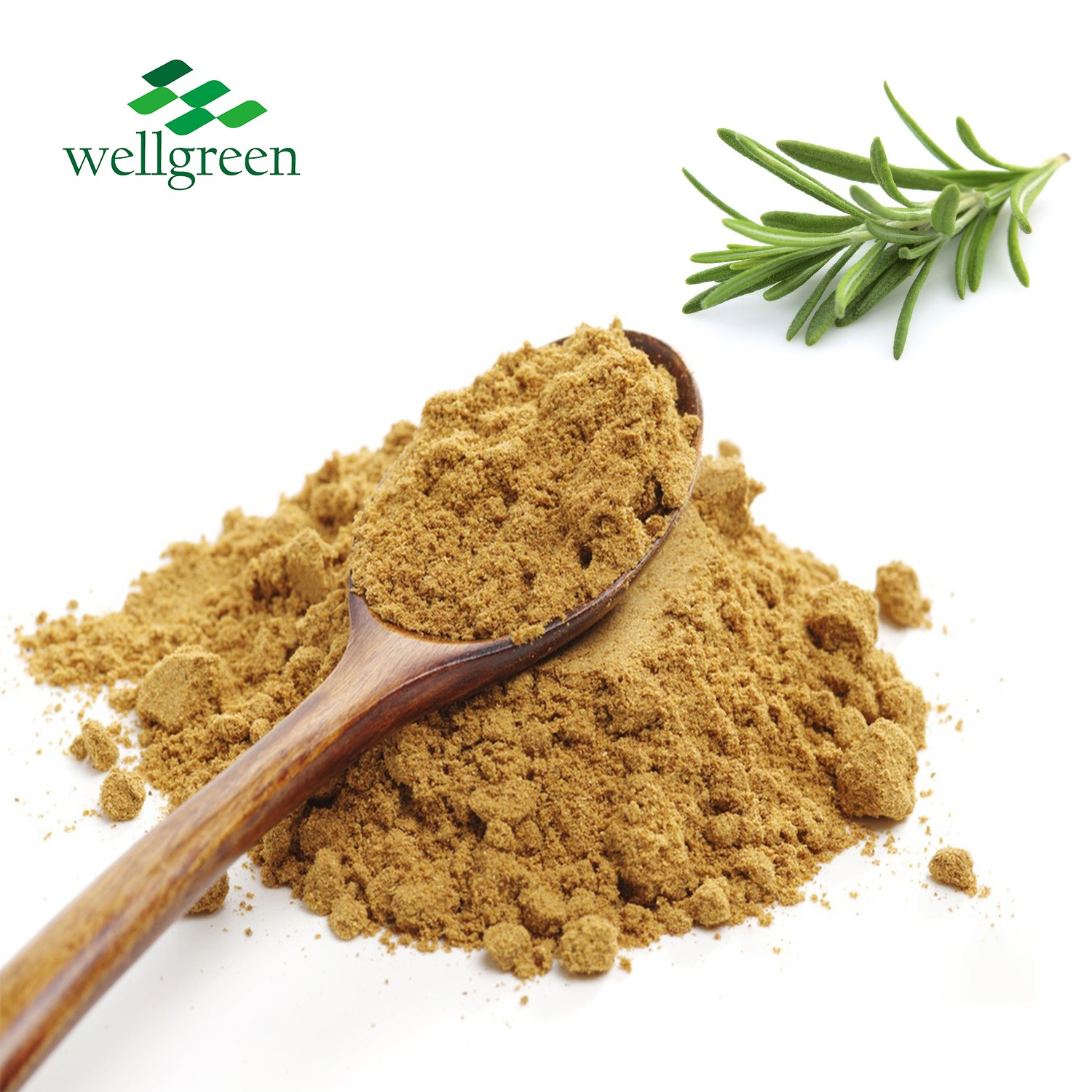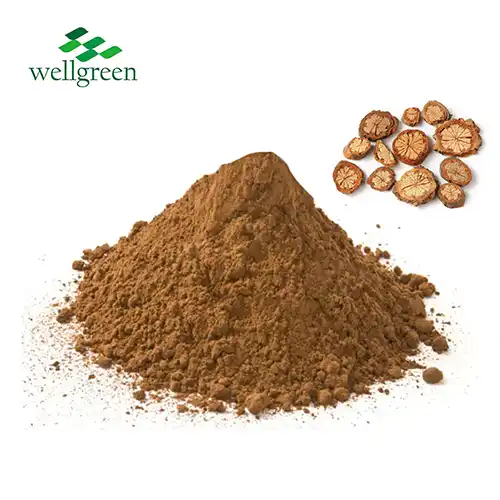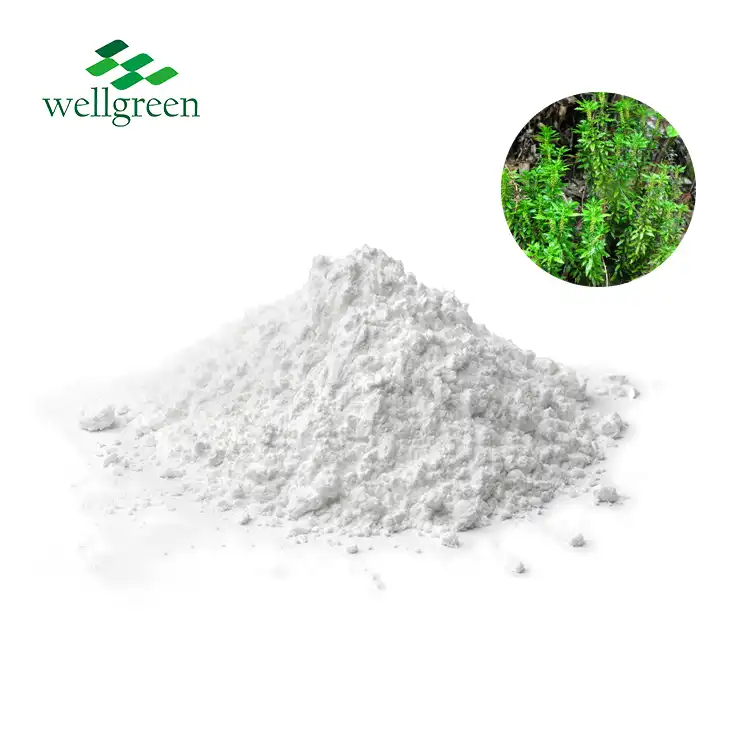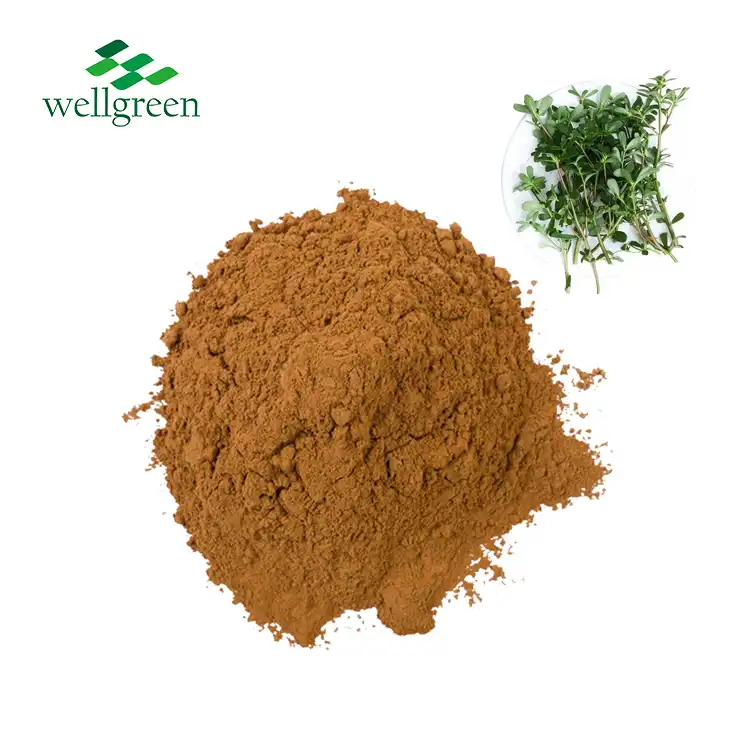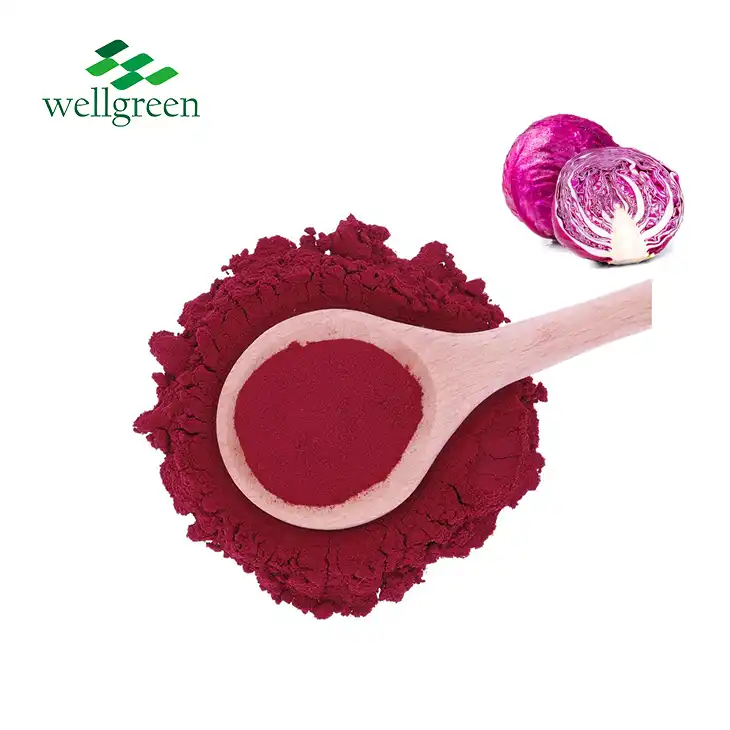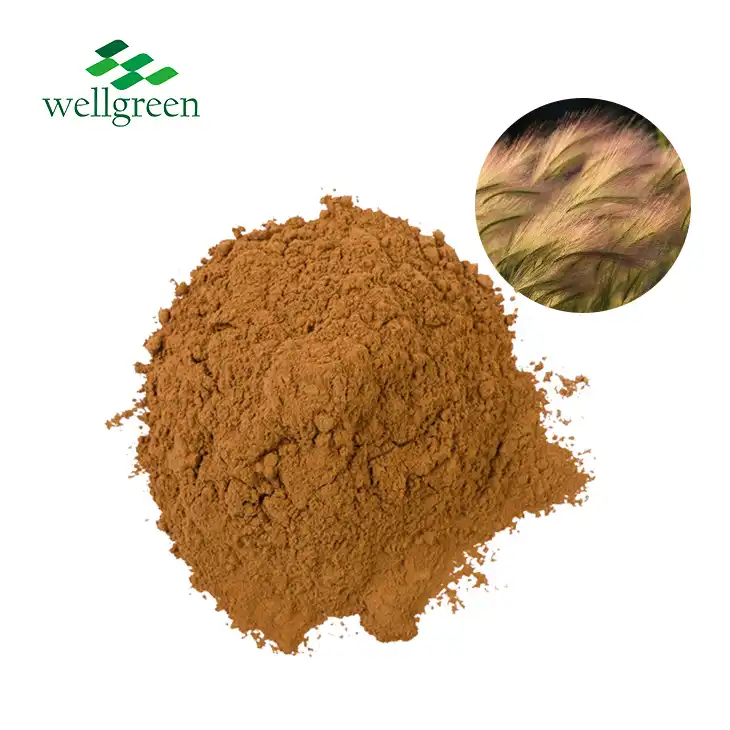Does Broccoli Seed Extract Help Acne?
2024-05-11 11:52:56
Millions of individuals worldwide suffer from acne, a common skin problem for which finding a suitable therapy can be difficult and irritating. Many people are turning to natural solutions in pursuit of a gentler approach, even while established treatments like oral pills and topical lotions are accessible. One such natural remedy that has gained attention in recent years is broccoli seed extract. But does the product help with acne? Let us investigate this query in more depth.
What Causes Acne and How Can Broccoli Seed Extract Help?
The complex ailment known as acne is caused by several variables, including hormone abnormalities, excessive oil production, germs, inflammation, and pore obstructions. it, abundant in sulforaphane, offers the potential to address these underlying causes:
 1. Anti-inflammatory Qualities:
1. Anti-inflammatory Qualities:
Inflammation plays a pivotal role in acne development. Sulforaphane, the key active ingredient in it, showcases robust anti-inflammatory characteristics. By mitigating inflammation, it can potentially diminish both the intensity and duration of acne outbreaks.
2. Antioxidant Features:
Oxidative stress can exacerbate acne lesions. broccoli extract powder, rich in sulforaphane and antioxidants, aids in neutralizing harmful free radicals, thus reducing oxidative stress on the skin and potentially improving acne conditions.
3. Antibacterial Benefits:
Bacterial presence, notably P. acnes, often aggravates acne. Studies indicate that sulforaphane may possess antibacterial properties, potentially aiding in controlling P. acne growth and lessening acne severity.
4. Oil Production Regulation:
Excessive sebum production can lead to pore blockages and acne formation. While the direct effects of it on sebum levels require further research, its anti-inflammatory and antioxidant properties suggest a potential for regulating oil production and preventing pore congestion.
Are There Scientific Studies on Broccoli Seed Extract for Acne?
While the potential mechanisms by which broccoli seed extract may help with acne are promising, the scientific evidence from human studies is still limited. Here's a look at some of the available research:
1. In vitro and Animal Studies:
Sulforaphane and other ingredients in the product have been the subject of numerous animal and in vitro (test tube) research that looked at how they affected various elements of acne, such as inflammation, bacterial growth, and sebum production. These studies have generally shown positive results, suggesting that the product may have beneficial effects on acne.
2. Human Clinical Trials:
Only a few small-scale human clinical trials have been conducted to evaluate the effectiveness of products for acne. One study published in the journal Phytotherapy Research in 2016 found that a topical cream containing it significantly reduced acne lesions and improved overall skin appearance after eight weeks of use.
While these preliminary results are encouraging, more large-scale, well-designed human studies are needed to confirm the efficacy and optimal dosages of the product for acne treatment.
What Are the Potential Side Effects of Using Broccoli Seed Extract for Acne?
Broccoli seed extract is generally considered safe when consumed or applied topically in recommended doses. However, there are a few potential side effects to be aware of:
1. Digestive Issues:
If taken orally, the product supplements may cause digestive discomfort, such as bloating, gas, or abdominal pain, in some individuals, particularly at higher doses.
2. Interactions with Medications:
Sulforaphane, the primary active compound in it, has been shown to interact with certain medications, particularly those metabolized by enzymes in the liver. It's essential to consult with a healthcare professional before taking supplements if you are on any medications.
3. Allergic Reactions:
Some individuals may be allergic to broccoli or its compounds, including sulforaphane. If you experience any signs of an allergic reaction, such as rash, hives, or difficulty breathing, discontinue use immediately and seek medical attention.
4. Skin Irritation:
When applied topically, it may cause skin irritation, redness, or dryness in some people, especially those with sensitive skin.
 It's important to start with lower doses and gradually increase as tolerated when using it supplements or topical products. If you experience any adverse effects or have concerns, it's best to consult with a healthcare professional or dermatologist.
It's important to start with lower doses and gradually increase as tolerated when using it supplements or topical products. If you experience any adverse effects or have concerns, it's best to consult with a healthcare professional or dermatologist.
In conclusion, while its anti-inflammatory, antioxidant, and antibacterial properties it suggest potential benefits for acne, more research is needed to confirm its effectiveness and establish optimal dosages and application methods. Suppose you are considering using broccoli extract powder for acne. In that case, it's advisable to consult with a healthcare professional or dermatologist, especially if you have any underlying health conditions or are taking medications. Additionally, be cautious of any potential side effects or allergic reactions, and always follow recommended dosage guidelines.
References:
1. Fahey, J. W., Zalcmann, A. T., & Talalay, P. (2001). The chemical diversity and distribution of glucosinolates and isothiocyanates among plants. Phytochemistry, 56(1), 5-51.
2. Higdon, J. V., Delage, B., Williams, D. E., & Dashwood, R. H. (2007). Cruciferous vegetables and human cancer risk: epidemiologic evidence and mechanistic basis. Pharmacological Research, 55(3), 224-236.
3. Bauer, D., Mazzio, E., Soliman, K. F., Taka, E., & Cooley, L. (2019). Glucoraphanin and sulforaphane: Technical preparation, total synthesis, and examination of their anticancer activities. Journal of Functional Foods, 54, 12-25.
4. Singh, K., Rani, A., Paul, J., Singh, G., Kaur, J., & Bhushan, S. (2020). Sulforaphane and its metabolites: Preclinical and clinical evidence for its antioxidant and anticancer activities. Journal of Functional Foods, 74, 104175.
5. Mirmiran, P., Bahadoran, Z., Hosseinpanah, F., Keyzayi, A., & Azizi, F. (2012). Effects of broccoli sprout with high sulforaphane concentration on inflammatory markers in type 2 diabetic patients: a randomized double-blind placebo-controlled clinical trial. Journal of Functional Foods, 4(4), 837-841.
6. Yagishita, Y., Fahey, J. W., Dinkova-Kostova, A. T., & Kensler, T. W. (2019). Broccoli or sulforaphane: Is it the source or dose that matters? Molecules, 24(19), 3593.
7. Dinkova-Kostova, A. T., & Talalay, P. (2008). Direct and indirect antioxidant properties of inducers of cytoprotective proteins. Molecular Nutrition & Food Research, 52(S1), S128-S138.
8. Mitsiogianni, M., Amery, T., Franco, R., Zoumpourlis, V., Pappa, A., & Panayiotidis, M. I. (2018). From chemo-prevention to epigenetic regulation: The role of isothiocyanates in skin cancer prevention. Pharmacology & Therapeutics, 190, 187-201.
9. Felker, P., Bunch, R., & Leung, A. M. (2016). Concentrations of thiocyanate and go it in human plasma, their precursor concentrations in brassica vegetables, and associated potential risk for hypothyroidism. Nutrition Reviews, 74(4), 248-258.
10. Narayanaswamy, R., & Isaacs, R. J. (2017). Broccoli Seed Extract: A review of its nutritional properties and bioactivities. Journal of Functional Foods, 33, 172-183.

